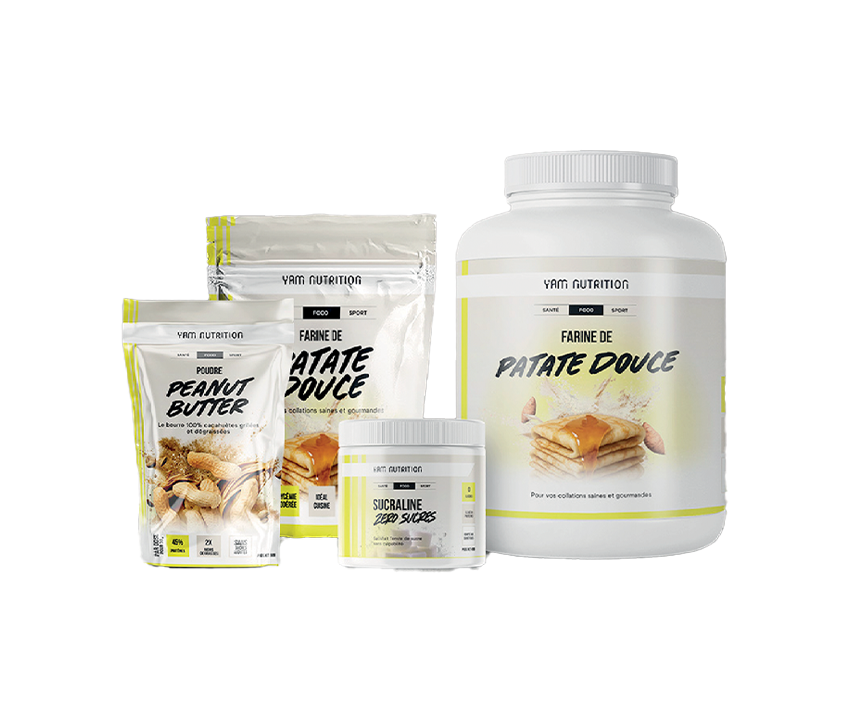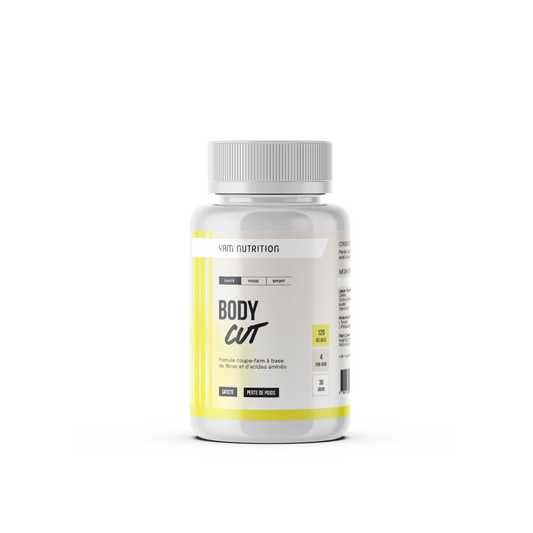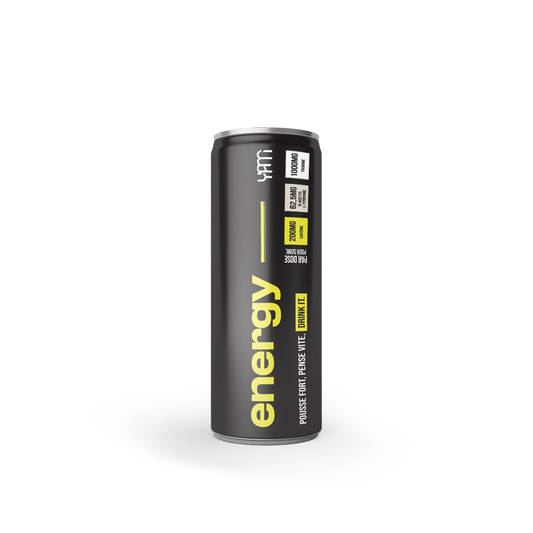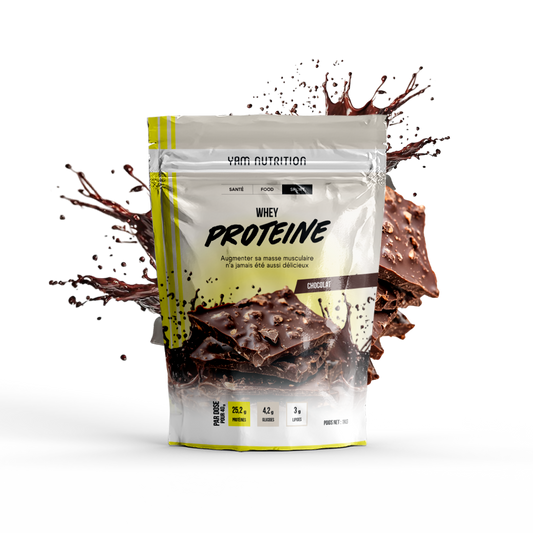Does whey make you fat?
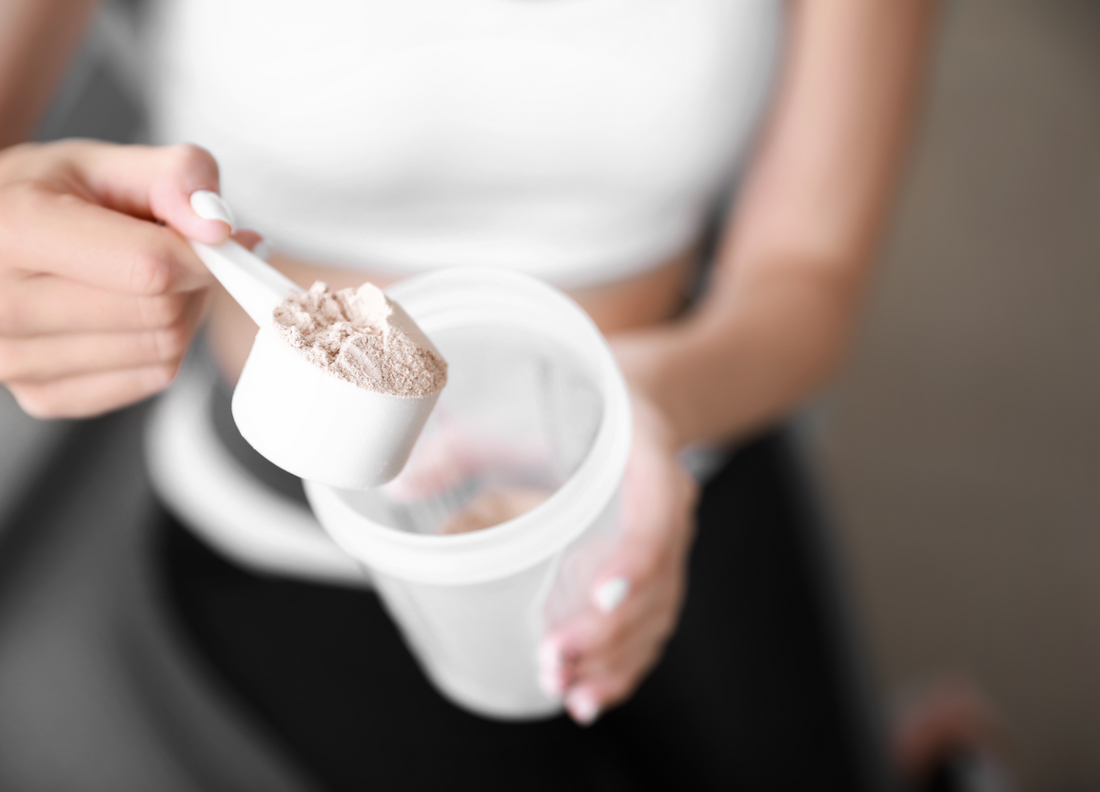
Sommaire
Whey protein is one of the most widely consumed protein powders on the sports nutrition market. Bodybuilders, weightlifters, and fitness enthusiasts alike consume it. whey with pleasure in order to improve their daily protein quota. Milk is composed of two distinct proteins, casein and whey. Micellar casein is a very dense protein, while whey is lighter and composed of peptides. Easily soluble in water, sports nutrition manufacturers have made it into a flavored protein powder that is quickly assimilated. With flavor, it is particularly rich in essential amino acids . Whey protein provides a simple and effective nutritional solution for bodybuilding athletes. On the other hand, it provides few calories. However, this will not stop some worried people from wondering if whey protein makes you fat... This question is often asked even though the terms "make you fat" themselves do not really have any meaning unless understood as "making you gain weight and body fat".
Caffeine without the crash thanks to NewCaff-75™ technology An appetite suppressant to help you stick to your diet without giving in by regulating your appetite. The energy drink 2.5x more caffeinated than average Building muscle mass has never been so delicious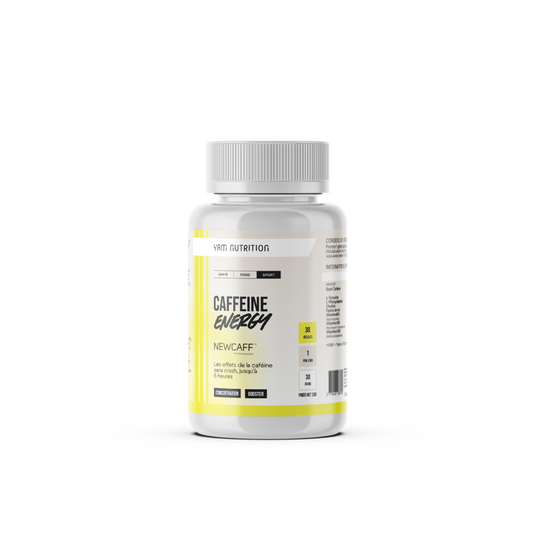
Caffeine Energy
29,90 €
Sale price
25,40 €
Body Cut Appetite Suppressant
Sale price
29,90 €
YAM Energy Drink
Sale price
From 2,50 €
Whey Protein
Sale price
From 37,90 €
What is whey protein or whey made of ?
Whey protein is a very light protein, mostly composed of peptides. A peptide is a molecule composed of amino acids linked together. These include lactoferrin, aminoglobulins, and other very scientific names that won't mean anything to you. These are solubilized in water, appearing as a white or slightly yellow liquid. For example, when you eat a cottage cheese, the liquid surrounding the cottage cheese is made of whey. In other words, it is whey in raw form that you will find in dry form in your protein powder.
How is whey powder obtained?
To obtain a protein powder composed solely of whey, numerous filtration and drying operations will be used in order to filter the milk several times. Naturally, the milk proteins will first be separated. Thus, the casein will first be extracted from the milk using a press, a set of enzymes allowing this to be separated protein from fresh milk. Once the casein is extracted from the milk, all that remains is a slightly yellowish liquid with a little lactose. This yellow liquid is whey, just like that of the cottage cheese mentioned above.
What is the caloric value of whey?
As with all proteins, The caloric value of whey is 4 calories per gram. This is also the case with micellar casein, which may seem heavier on the stomach but whose caloric value is identical. In other words, if you take 20 grams of whey powder and mix it with water, you will get 80 calories, or 100 calories with 25 g of powder. Overall, this represents a small cereal bar or a banana, but regarding this fruit, it will mainly be a carbohydrate intake, which is totally different. If you take your whey with semi-skimmed milk, you will consume 110 to 120 calories on average, which is quite low. As you have noticed, the interest of whey is mainly to provide you with a certain amount of protein pure, sugar-free and fat-free. This means whey protein provides you with the essential amino acids that contribute to muscle growth without adding an extravagant amount of calories. What's more, concentrated whey protein contains only a few grams of fat when made into powder. whey isolate of very good quality, will still contain 1 to 3 grams of fat on average. If your diet is balanced, whey will therefore not make you gain weight . But even if your diet was too high in fat and sugar, a whey shake wouldn't make you fat.
Why doesn't protein make you fat?
Scientific research on human nutrition clearly demonstrates that carbohydrates and fats lead to weight gain when consumed in excess. Conversely, a high protein intake tends to reduce appetite. Indeed, proteins are much more satiating, they lead to a feeling of fullness more quickly. As a result, cravings for snacking between meals will be significantly less frequent. It is not uncommon for high-protein diets to produce very good results on the weight loss . There are several reasons for this. First, because protein helps maintain muscle mass. Obviously, muscle is the only organ that can vary energy expenditure and calorie loss through exercise. Conversely, when protein intake is insufficient, you lose muscle mass and, at the same time, your ability to burn more fat and calories.
Why Whey Won't Make You Fat ?
So, you understand very well that it will be difficult for you to gain weight with protein powder, especially since its effect on satiety will reduce the total caloric intake over a day. In addition, whey powder is a protein more often used by bodybuilders who want to gain muscle or by people who want to lose weight. In these conditions, this protein will make it very difficult for you gain weight . In fact, whey is the very opposite of gainers, food supplements high in calories and carbohydrates. You could possibly add 30g of whey to oatmeal, honey and milk to make a good snack, but even then, it's still a healthy snack. We rather think that people, whether they're athletes or not, who think that whey can make them fat are those who have never taken it...
If whey doesn't make you fat, what are its qualities?
Whey has several benefits demonstrated by scientific research. Mainly composed of peptides , it contributes to the maintenance and health of the immune system. Indeed, it is enough to remember that the whey in milk has precisely this role for the calf which has just been born and whose system is still too underdeveloped. In humans, whey peptides such as immunoglobulins or lactoferrin are known for their interest in human health. Apart from this observation, whey is assimilated in less than an hour, which makes it an excellent source of amino acids to consume after a sports session, with a very moderate intake of calories.
On the other hand, can whey help you lose weight and contribute to weight loss?
While whey protein may not make you gain weight, it could make you lose weight. Indeed, we have seen that whey protein is naturally satiating, like other types of protein . So, if you take this type of protein powder, you will reduce the end but you will also help to fuel your muscles, helping you lose weight more easily. Taking a whey milkshake will provide you with 25 to 30 grams of pure protein that will fuel your body with only 100 to 120 calories per shake if you take it with water. Combined with a well-calculated low-calorie diet as well as regular sports sessions, whey will help you melt fat and lose weight much more effectively. On the other hand, we really don't see how whey could make you fat. That being said, if you eat way more than your body needs, any added nutrients or foods will make you gain weight. But even then, whey will reduce the calories you consume because it will curb your appetite...
Eric MALLET
Spécialiste en Nutrition Sportive
